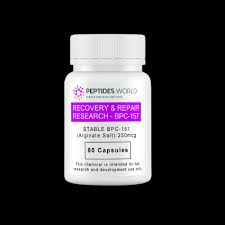Aging is a natural process that everyone goes through, but not everyone wants to show it. This is why the beauty industry has developed a wide range of products that aim to reduce the signs of aging, from creams and serums to masks and facials. One of the latest trends in anti-aging skincare is the use of cosmetic peptides. These tiny protein fragments are said to have powerful effects on reducing wrinkles, fine lines, and other signs of aging. But what exactly are cosmetic peptides, and how do they work? In this post, we’ll explore the science behind peptide-based anti-aging products.
Peptides are short chains of amino acids – the building blocks of proteins. In our body, peptides play many roles, such as signaling molecules that regulate various biological processes. When it comes to skincare, certain peptides have been found to have anti-aging effects. For example, copper peptides are thought to stimulate collagen production and improve skin elasticity. Palmitoyl pentapeptide-4 (also known as Matrixyl) has been shown to increase skin thickness and reduce wrinkle depth.
So how do these peptides work? Essentially, they send signals to your skin cells to produce more collagen or elastin – two proteins that keep your skin firm and plump. As we age, our body produces less collagen and elastin naturally, which leads to sagging skin and wrinkles. By introducing specific peptides into your skincare routine, you can potentially boost your skin’s natural production of these important proteins.
But not all cosmetic peptides are created equal. Some may have little or no effect on anti-aging, while others may be too harsh for sensitive skin types. It’s important to research which peptide-based products are best suited for your individual needs before incorporating them into your routine.
Another thing to keep in mind is that peptides work best when used in conjunction with other anti-aging ingredients, such as retinoids or vitamin C. These compounds can help enhance the effects of peptides and provide additional benefits for your skin.
While peptide-based skincare products are relatively new to the market, they have already gained a lot of popularity among consumers. Many people swear by these products and claim to see noticeable improvements in their skin’s texture and appearance. However, it’s important to remember that everyone’s skin is different, and what works for one person may not work for another.
Conclusion:
cosmetic peptides are a promising area of research in the field of anti-aging skincare. By harnessing the power of these tiny protein fragments, we may be able to reverse some of the signs of aging and keep our skin looking youthful and radiant. While more research is needed to fully understand how peptides work and which ones are most effective, there is no denying that they have captured the attention of both scientists and consumers alike. So if you’re looking for a new way to fight back against wrinkles and fine lines, why not give peptide-based skincare products a try? You just might be pleasantly surprised by the results!



